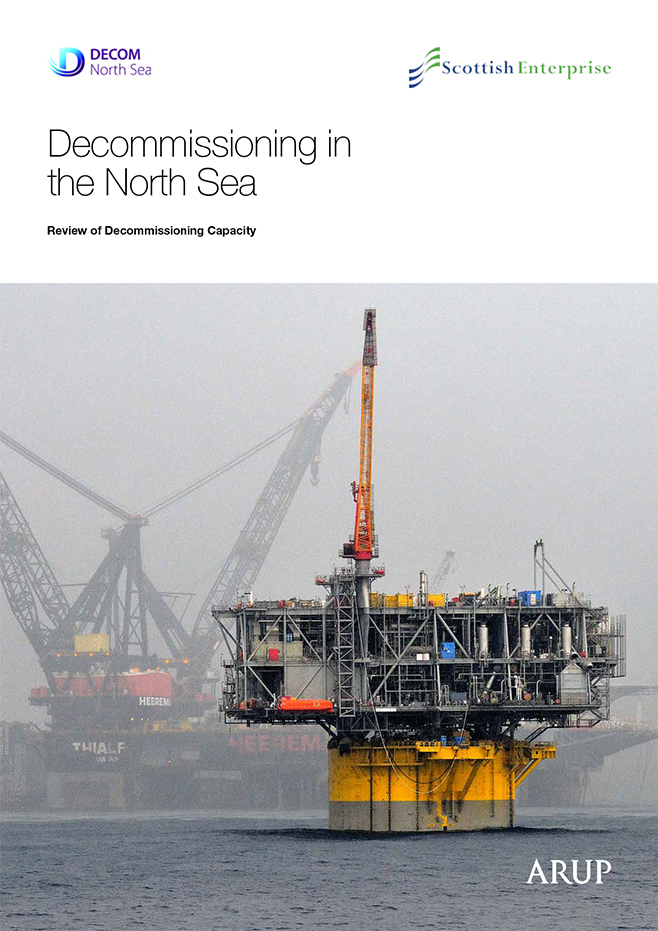Report Reveals Scale of Offshore Decommissioning Market
By 2040, investment of around £30 billion is expected in the UK Continental Shelf (UKSC) on decommissioning North Sea oil and gas projects according to a new report prepared by Arup, and commissioned by Decom North Sea and Scottish Enterprise.
To capitalize on this significant opportunity, the report highlights a number of key areas for industry to consider. These include talent attraction, innovation and contracting/procurement strategies.
 “Decommissioning is highlighted as a key opportunity for the supply chain in Scotland’s oil & gas strategy. With an increasing number of assets approaching end of life, we recognize we need to ensure the supply chain is prepared to meet the challenges this presents." — David Rennie, international sector head for oil and gas, Scottish Enterprise
“Decommissioning is highlighted as a key opportunity for the supply chain in Scotland’s oil & gas strategy. With an increasing number of assets approaching end of life, we recognize we need to ensure the supply chain is prepared to meet the challenges this presents." — David Rennie, international sector head for oil and gas, Scottish Enterprise
The report draws upon the experience and expertise of a number of significant firms currently operating within the North Sea decommissioning market. It considers available capacity, investment lead time, investment commitment, pressures/ synergies from other industries and existing capability. The report focuses on key areas of the supply chain where there may be significant resource constraints including:
Rigs/rigless abandonment resources
Removal vessels for topsides and substructure
Ports/harbors/yards for recycling
Skilled engineering and operational resources serving all aspects of the sector
“The decommissioning market will require upwards of £30bn of expenditure before 2040 in the UKCS. This offers a significant socio-economic opportunity in terms of job creation in the Scottish, UK and European supply chain, and a foundation from which North Sea based firms can export expertise to other parts of the world. To take full advantage of this opportunity, the industry must build on its existing capacity and capability to service the complex and demanding nature of decommissioning work in the North Sea.” — Clare Lavelle, Scottish Energy Consulting Lead, Arup

that matters most
Get the latest maritime news delivered to your inbox daily.
It also highlighted the need to shift procurement strategies away from focusing solely on providers with long-term experience within the industry and to include new entrants to the supply chain who can introduce innovative methods, reduce costs, and broaden the supply chain market.
Check out the full report HERE.
